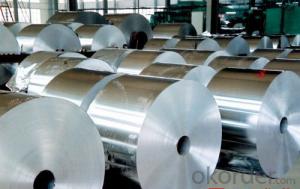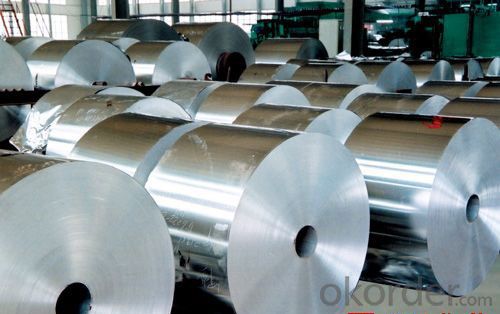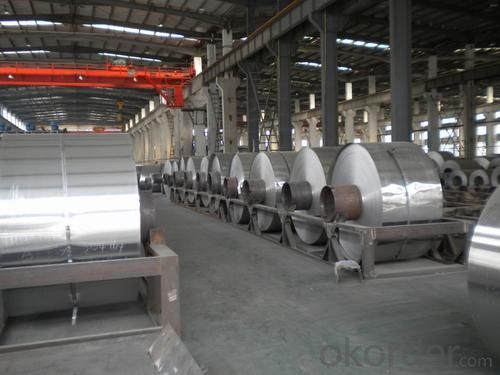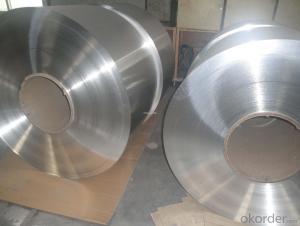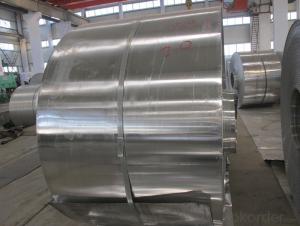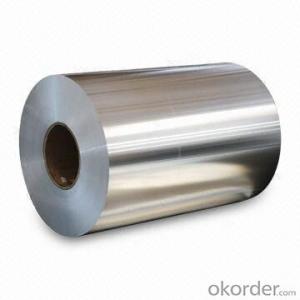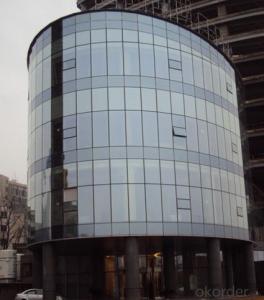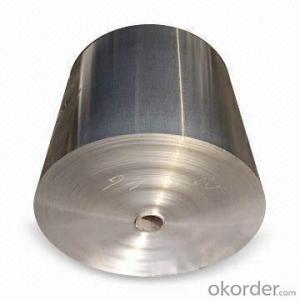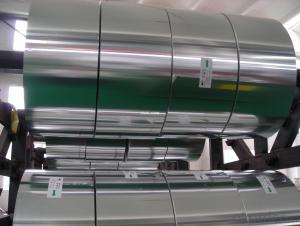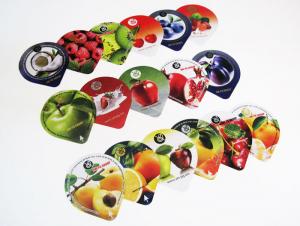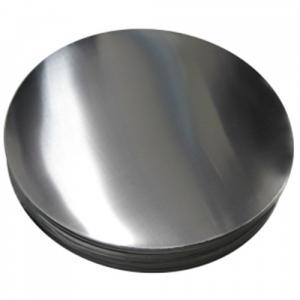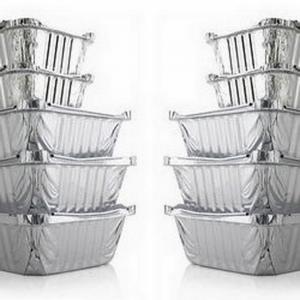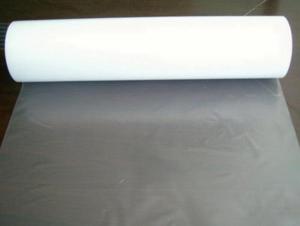Aluminum DC and CC Anodized Aluminum Coil for Gutter
- Loading Port:
- Shanghai
- Payment Terms:
- TT OR LC
- Min Order Qty:
- 5 m.t.
- Supply Capability:
- 100000 m.t./month
OKorder Service Pledge
OKorder Financial Service
You Might Also Like
Specification
Product Description
Alloy: 5052(AlMg2.5)
Temper: O,H12,H22,H32,H14,H24,H34,H16,H26,H36,H18,H38,F
CHEMICAL COMPOSITION LIMITS (%)
Silicon | Iron | Copper | Manganese | Magnesium | Chromium | Nickel | Zinc | Titanium | Others | Total | Aluminum |
0.25 | 0.4 | 0.10 | 0.10 | 2.2-2.8 | 0.15-0.35 | 0.10 | 0.05 | 0.15 |
Remainder |
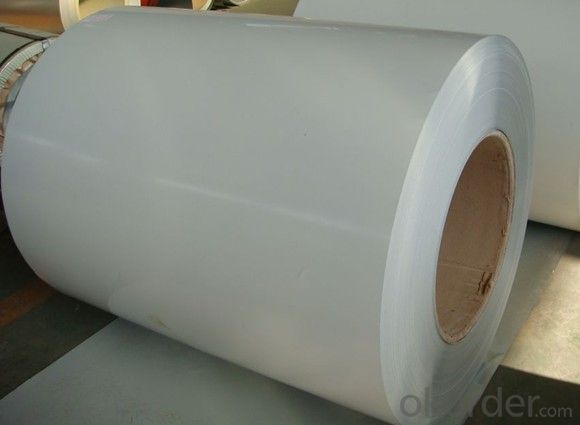
Main application: Magnesium gives this alloy its enhanced corrosion resistance, workability, strength and weldability. Typical uses include aircraft fuel tanks, container body, truck/trailer body, electronic mounting plates and panels, fan blades, refrigeration liners, storm shutters and utensils.
Mechanical Property Limits
Alloy | Temper | Thickness(mm) | Tensile Strength(MPa) | Elg%(50mm) |
5052 | O | >0.5-0.8 >0.8-1.3 >1.3-6.5 >6.5-10.0 | 170-215
| ≥15 ≥17 ≥19 ≥18 |
H12/H22/H32 | >0.5-1.3 >1.3-4.5 | 215-265 | ≥5 ≥7 | |
H14/H24/H34 | >0.5-0.8 >0.8-1.3 >1.3-4.5 | 235-285 | ≥3 ≥4 ≥6 | |
H16/H26/H36 | >0.5-0.8 >0.8-4.5 | 255-305 | ≥3 ≥4 | |
H18/H38 | >0.5-0.8 >0.8-4.5 | ≥270 | ≥3 ≥4 | |
H112 | >4.5-6.5 | ≥195 | ≥9 ≥7 | |
>6.5-12.5 | ≥195 | |||
>12.5-40.0 | ≥175 | |||
>40.0-80.0 | ≥175 |
Our Services
Payment: by 30%T/T in advance and balance before shipment or 100% L/C at sight
Delivery: within 30 days after we get your deposit or L/C.
Packing: sea worthy wooden pallet
Loading port: Qingdao/Shanghai/Tianjin, China
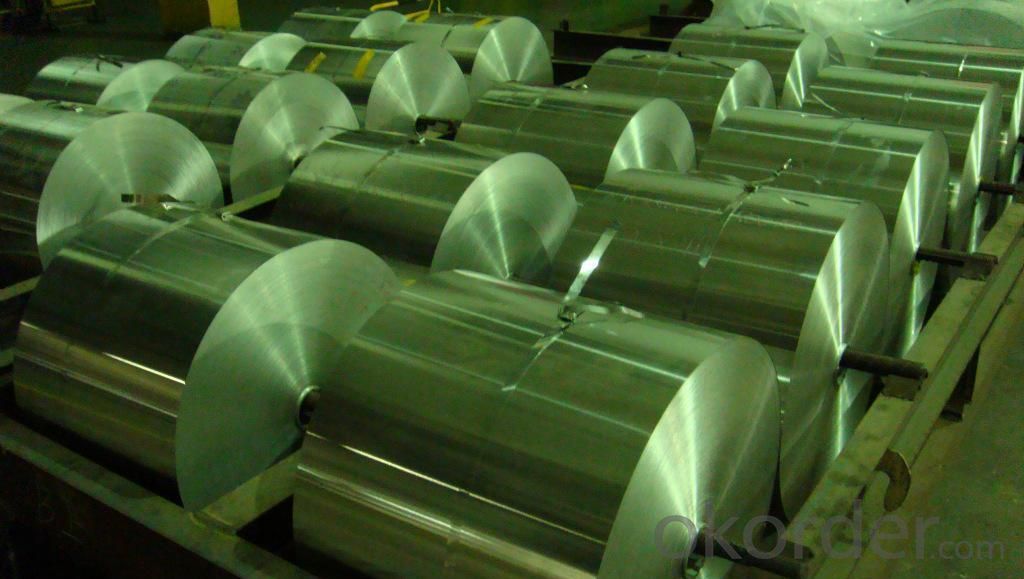
Company Information
CNBM is in aluminum foil, coil, sheet, plate for more than 10 years, thus we have rich product, technology and market experiences. With the world’s top aluminum processing equipments, experienced technical staff, cooperative and professional sales team, and the enterprise concept of responsibility and sharing, we have been widely focused since the day set up, and has gained high praise from customers home and abroad until now.
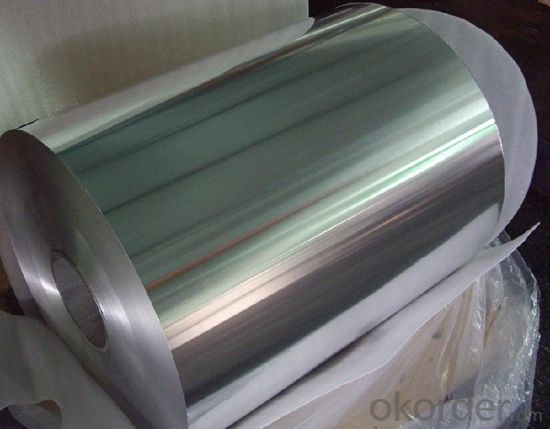
- Q: This question asks for a list of typical metal alloys that are utilized in the production of cars.
- <p>Common alloys used in automobile manufacturing include steel alloys such as low carbon steel, high-strength steel, and stainless steel for body and frame construction. Aluminum alloys are also widely used for their lightweight properties, especially in engine components and body panels. Magnesium alloys are employed for parts requiring high strength-to-weight ratios. Additionally, cast iron is used for engine blocks and cylinder heads, while copper alloys are utilized in radiators and electrical wiring. Titanium alloys find use in high-performance or luxury vehicles for their exceptional strength and low weight.</p>
- Q: This question seeks to understand the impact of aluminum exposure on human health, including potential risks and consequences.
- <p>Aluminum is a common element found in the environment, and while it is generally considered safe, there are concerns about its health effects on humans. High levels of aluminum exposure have been linked to neurological disorders, particularly Alzheimer's disease, although the relationship is not definitively proven. Aluminum can also cause bone diseases and anemia, as it can interfere with the absorption of calcium and iron. Long-term exposure to high levels of aluminum may lead to cognitive dysfunction and memory loss. However, the everyday exposure to aluminum from food, water, and medications is considered safe by health authorities, and there is no need for alarm in normal circumstances.</p>
- Q: Can recycled aluminum be utilized in the production of solar panels and other renewable energy technologies?
- <p>Yes, recycled aluminum can be used to make solar panels and other renewable energy sources. Aluminum is a key component in solar panel frames and mounting structures due to its lightweight, high strength, and corrosion resistance. Recycling aluminum saves energy and resources compared to mining and refining new aluminum. Additionally, recycled aluminum can be used in wind turbines, hydroelectric generators, and other renewable energy technologies where its properties are beneficial. The use of recycled materials in renewable energy production contributes to a more sustainable and circular economy.</p>
- Q: This question asks for a brief explanation of the process of recycling aluminum.
- <p>Aluminum recycling involves several steps. First, aluminum waste is collected and sorted. It is then cleaned to remove any contaminants. The cleaned aluminum is melted in a furnace at high temperatures, which is an energy-efficient process as aluminum has a lower melting point compared to other metals. The molten aluminum is then poured into molds to form new products. This process is highly sustainable as it saves energy and reduces waste, with recycled aluminum requiring only 5% of the energy needed to produce new aluminum from raw materials. Recycled aluminum maintains its quality, making it an ideal material for continuous recycling.</p>
- Q: What are some important safety measures to take when handling or working with aluminum?
- <p>When working with aluminum, it's crucial to take several safety precautions. Always wear appropriate personal protective equipment (PPE), including safety glasses, gloves, and a dust mask to prevent inhalation of aluminum dust. Ensure good ventilation to avoid build-up of fumes, especially during welding or cutting processes. Use proper tools designed for aluminum to prevent sparks and overheating. Be aware of the fire hazard; aluminum can burn at high temperatures, so have fire extinguishers readily available. Finally, be cautious with chemicals used in aluminum processing, as they can be harmful; always follow the manufacturer's safety instructions.</p>
- Q: What are the positive environmental impacts associated with the use of aluminum?
- <p>Aluminum offers several environmental benefits. It is highly recyclable, which means it can be reused multiple times without losing its properties, reducing the need for raw materials and the energy required for extraction and processing. Aluminum is also lightweight, which can reduce fuel consumption and emissions in transportation. Additionally, aluminum is a good conductor of heat and electricity, making it energy-efficient in various applications such as insulation and electrical wiring. Its durability and resistance to corrosion mean it lasts longer, reducing waste and the need for frequent replacements.</p>
- Q: Is it safe to use pure aluminum for baking or roasting food in a traditional oven or grill?
- <p>While pure aluminum is a common material in cookware, it's not recommended for direct use in baking or roasting food in a traditional oven or grill. Aluminum can react with acidic foods, potentially leaching aluminum into the food. Additionally, aluminum foil can burn and create a hazardous situation. For baking or roasting, it's safer to use materials specifically designed for these purposes, such as parchment paper, silicone baking mats, or oven-safe dishes.</p>
- Q: What are some environmentally friendly options that can replace aluminum in various applications?
- <p>Sustainable alternatives to aluminum include biodegradable materials like bamboo and hemp, which can be used in construction and packaging. Stainless steel is a recyclable metal that can replace aluminum in many applications due to its durability and strength. Recycled aluminum itself is a sustainable option as it requires less energy to produce than new aluminum. Additionally, magnesium and titanium are lightweight metals that can be used in place of aluminum in certain industries. It's important to consider the specific application when choosing an alternative, as each material has its own set of properties and environmental impacts.</p>
- Q: Is it possible to develop allergies from exposure to aluminum found in food packaging materials?
- <p>While aluminum is commonly used in food packaging materials, the risk of allergic reactions to aluminum is generally low for most people. Aluminum is not a known allergen, and exposure through packaging is typically minimal. However, individuals with a rare condition called contact dermatitis may experience skin irritation from aluminum. For the general population, the risk of allergic reactions due to aluminum in food packaging is negligible. It's always important to monitor any unusual reactions and consult a healthcare professional if concerned.</p>
- Q: Exploring the possibility of using materials that are more eco-friendly than aluminum.
- <p>Yes, various alternative materials can be used that are more environmentally friendly than aluminum. These include biodegradable plastics, recycled materials, and natural fibers such as bamboo and hemp. For instance, bioplastics can be derived from renewable sources like corn starch or sugarcane, reducing the carbon footprint. Recycled materials not only reduce waste but also save energy compared to producing new materials. Natural fibers are sustainable and can be used in construction, packaging, and other applications traditionally served by aluminum. However, it's crucial to consider the specific application's requirements and the lifecycle impact of these alternatives.</p>
Send your message to us
Aluminum DC and CC Anodized Aluminum Coil for Gutter
- Loading Port:
- Shanghai
- Payment Terms:
- TT OR LC
- Min Order Qty:
- 5 m.t.
- Supply Capability:
- 100000 m.t./month
OKorder Service Pledge
OKorder Financial Service
Similar products
Hot products
Hot Searches
Related keywords
